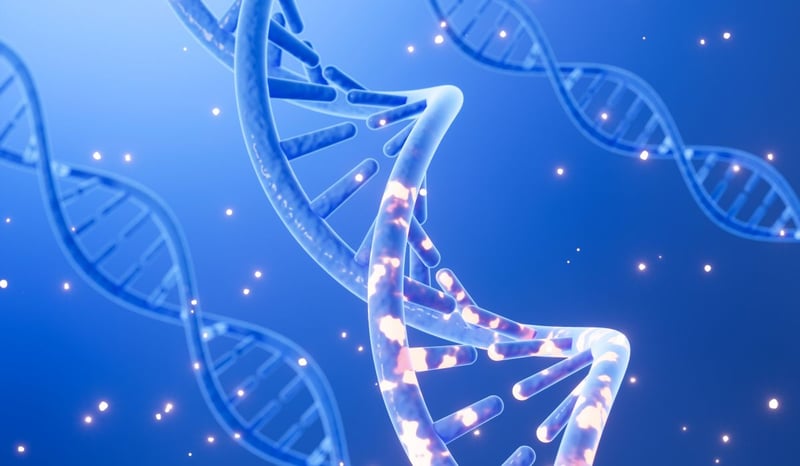
Colorectal cancer treatments have advanced tremendously over the past 30 years. New treatment options were developed as the result of clinical research, giving patients with a colorectal cancer diagnosis a higher likelihood of surviving. While this is great, there is even more good news about how to treat colorectal cancer!
With a greater understanding of genetics today than ever before, researchers have found that colorectal cancer can respond to different treatments based on specific biomarkers found in the cancer cells. What does this mean?
Essentially it means that oncologists are better able to target cancer cells based on the results of the genetic analysis performed on the cancer cells, resulting in even better results than what we have achieved already.
What are Biomarkers, and How Do You Identify Them?
First, it’s important to understand what biomarkers are. Biomarkers are specific molecules that can be found in all of your bodily fluids and tissues, including your blood and cancerous cells. These biomarkers are created by our genes.
If a gene has mutated over time, resulting in the development of cancer, it produces different proteins than healthy cells. Some colorectal cancer cells have been found to show a high level of these proteins, which causes them to reproduce faster than they should.
Colorectal cancer patients are tested for these biomarkers, usually after diagnosis, to identify a specific treatment that is known to attack the proteins on the unhealthy cells. If the cancer is recurrent, meaning it’s returned after being in remission for a period of time, biomarker testing may be needed if it wasn’t available or performed at the time of diagnosis.
The biomarker test is either a blood test or a test of tissue removed during a biopsy or surgery. These samples are then sent to a pathologist who analyzes them to determine if any mutations in the DNA are identified. The test results allow your oncologist to understand more about the specific characteristics of the tumor to help guide personalized treatment decisions for patients with colorectal cancer.
There are a variety of different biomarkers specifically related to colorectal cancer, including RAS, BRAF, EFGR, HER2, NTRK, CEA, TRK fusions, TMB and MSI-H/dMMR. Based on their findings, treatment can be specifically designed to target the cancer and genetic mutation.
It’s important to note that the biomarker tests are not looking for inherited genetic mutations. However, if your family has a history of precancerous polyps or colorectal cancer, talk to your colorectal cancer doctor about that as well.
Improved Colorectal Cancer Treatment Options Because of Biomarker Testing
The Human Genome Project, an international research project aiming to understand all the genes that make up human DNA, has allowed colorectal cancer treatments to be developed based on mutations found in the patient's DNA. Treating cancer based on a patient’s genes or any mutations detected is called "precision medicine” or "personalized medicine."
Thanks to biomarker testing, cancer researchers have been able to develop targeted therapies that are specifically tailored to the genetic mutations found in colorectal cancer. These are called targeted therapies. They work by identifying the cells that are producing the protein that fuels cancer cells. The drugs then attack and kill the cancer cells, while causing little damage to healthy cells. The precision of this is that there are various targeted therapies available based on the protein that’s identified.
When Should Biomarker Testing Be Done For Colorectal Cancer Patients?
After a colon or rectal cancer diagnosis, your cancer care team may recommend you have a biomarker test to see if you have any mutations in your DNA. It’s helpful to have biomarker testing done as early as possible to guide colorectal cancer care and treatment. Based on those results, as well as the stage of colorectal cancer, a plan will be developed.
- If you are diagnosed with stage II, III, or IV colorectal cancer, your oncologist might test for certain biomarkers like CEA during routine follow-up visits. This will confirm whether colorectal cancer has returned or can offer additional information about the tumor that can impact treatment.
- If you are diagnosed with stage IV metastatic colorectal cancer, you might be tested for at least three predictive biomarkers: RAS, BRAF, and MSI/dMMR.
Biomarker Testing and the Latest Colorectal Cancer Treatments in Portland-Vancouver
Biomarker testing for colorectal cancer allows for more effective treatments than what’s previously been available. Our oncologists offer precision medicine options to treat colorectal cancer thanks to the advancement of biomarker testing. Plus, survival rates will continue to improve because of these new treatment options.
If you or a loved one has been newly diagnosed with colorectal cancer, the colorectal cancer specialists at Compass Oncology are here to help. We discuss all of the treatment options available to you and evaluate each patient for potential precision medicine treatments.
If you're in the Portland-Vancouver area, request an appointment at Compass Oncology to learn more about the latest treatments for colorectal cancer and our collaborative approach to cancer care.



